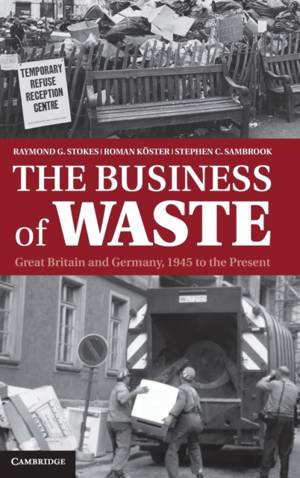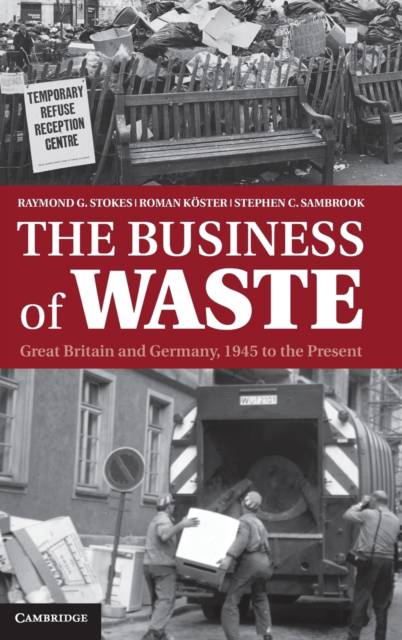
- Afhalen na 1 uur in een winkel met voorraad
- Gratis thuislevering in België vanaf € 30
- Ruim aanbod met 7 miljoen producten
- Afhalen na 1 uur in een winkel met voorraad
- Gratis thuislevering in België vanaf € 30
- Ruim aanbod met 7 miljoen producten
Zoeken
The Business of Waste
Great Britain and Germany, 1945 to the Present
Raymond G Stokes, Roman Köster, Stephen C Sambrook
Hardcover | Engels
€ 172,95
+ 345 punten
Omschrijving
The advent of consumer societies in the United Kingdom and West Germany after 1945 led to the mass "production" of garbage. This book compares the social, cultural, and economic fallout of the growing volume and changing composition of waste in the two countries from 1945 to the present through sustained attention to changes in the business of handling household waste. Though the UK and Germany are similar in population density, degrees of urbanization, and standardization, the two countries took profoundly different paths from low-waste to throwaway societies, and more recently, toward the goal of "zero-waste." The authors explore evolving balances between public and private provision in waste services; the transformation of public cleansing into waste management; the role of government legislation and regulation; emerging conceptualizations of recycling and resource recovery; and the gradual shift of the industry's regulatory and business context from local to national and then to international.
Specificaties
Betrokkenen
- Auteur(s):
- Uitgeverij:
Inhoud
- Aantal bladzijden:
- 343
- Taal:
- Engels
Eigenschappen
- Productcode (EAN):
- 9781107027213
- Verschijningsdatum:
- 2/09/2013
- Uitvoering:
- Hardcover
- Formaat:
- Genaaid
- Afmetingen:
- 157 mm x 231 mm
- Gewicht:
- 612 g

Alleen bij Standaard Boekhandel
+ 345 punten op je klantenkaart van Standaard Boekhandel
Beoordelingen
We publiceren alleen reviews die voldoen aan de voorwaarden voor reviews. Bekijk onze voorwaarden voor reviews.











